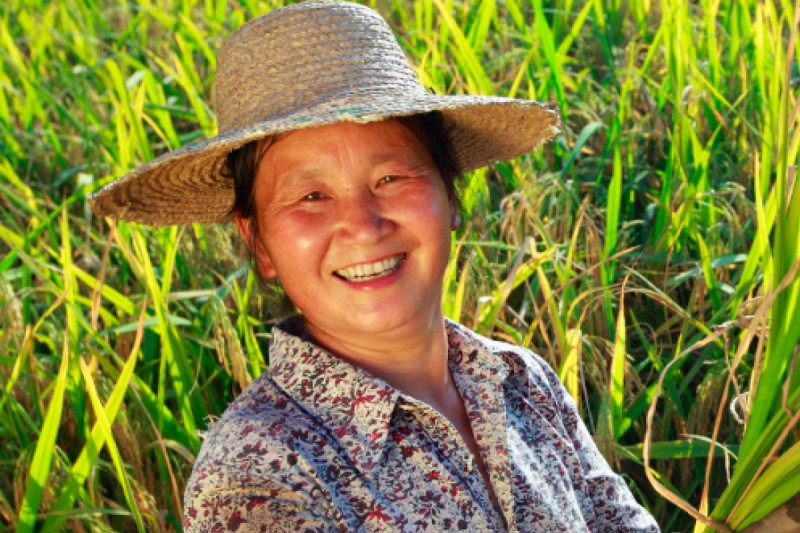
Named after the colour of the fifth indicator of the United Nations Sustainable Development Goals (SDG) on gender equality, orange bonds — a type of social bond — merge financial investment with positive societal impact.
Proceeds of the bond are used to fund projects that generate positive impact in areas such as housing, healthcare and employment. The emergence of this type of bond reflects a growing interest in using financial tools to address pressing societal concerns.
An example of this is Impact Investment Exchange’s (IIX) Women’s Livelihood Bond (WLB) series, which are orange bonds that promote gender-lens investing. Bond proceeds are deployed to enterprises that are owned and operated by women to promote gender equality.
Based in Singapore, IIX calls itself a pioneer in impact investing, and was founded to use innovative finance for social good. Other than the WLB, it has the IIX Growth Fund and IIX Women’s Catalyst Fund to promote women’s empowerment and a crowdfunding platform for impact investment.
Its WLB2, which was issued in 2020, fully matured in January 2024, marking the completion of a US$12 million (RM57.4 million) issuance with a four-year tenure and a 4% coupon. WLB2 has helped over 250,000 underserved women and girls in Cambodia, Indonesia, the Philippines and Sri Lanka, according to IIX.
Meanwhile, its latest WLB6 is the largest gender-based investment bond for the whole series, with a total issuance of US$100 million and a 7.25% coupon rate. It is expected to uplift over 880,000 women in India, Cambodia, Indonesia, Kenya and Vietnam, with focus on agriculture, water and sanitation, clean energy, affordable housing, small- and medium-enterprises (SMEs) lending and microfinance.
IIX CEO and founder Durreen Shahnaz says WLB6, which will mature in December 2027, is designed entirely to empower women and it dedicates 25% to 30% of the proceeds to support SDG 13: Climate Action, ensuring a dual impact.
This approach, Shahnaz says, not only benefits the targeted women and gender minorities but is also aligned with the broader goals of investors seeking both financial returns and meaningful societal impact.
To safeguard against token gestures and “social washing”, the orange bond principles were established with emphasis on data transparency. This commitment to transparency, Shahnaz says, is evident in the investment process of WLB6, where regular reports on gender impact are provided to investors.
Every transaction must be aligned with the three orange bond principles, which are gender-positive capital allocation; gender-lens capacity and diversity in leadership; and transparency in the investment process and reporting.
WLB is also committed to collaborating with stakeholders and enterprises that positively impact women, girls and gender minorities, says Shahnaz.
“Our approach also includes in-depth, on-the-ground interviews with beneficiary women, utilising the IIX value impact measurement tool. This tool assesses annual beneficiary confirmation, collects input from beneficiaries and conducts gender-inclusive impact assessment.”
The selection phase of projects for funding involves on-the-ground visits and interviews with entity management, teams, stakeholders and the ultimate beneficiaries, she adds. The assessment covers impact evaluation, financial standing and alignment with the mission and goals of the WLB series.
“At a fundamental level, we look at each potential project’s mission, vision, goals and business structure … We seek high-impact enterprises that commit to gender equality and climate action,” she says.
According to a press release by IIX, one of the companies that the WLB has benefited is Vietnam-based Detech Coffee, a women-owned family business known for its sustainable and certified Arabica coffee production and collaboration with ethnic minorities.
Successful projects
WLB1 and WLB2 have matured successfully and surpassed their financial and impact targets, according to IIX.
WLB1 had a target of 377,389 total female beneficiaries but exceeded it by 20% as 453,074 women and girls in Cambodia, the Philippines and Vietnam received access to SME lending.
WLB1 was the world’s first listed bond with an impact mandate, and was listed on the Singapore Exchange. Its investees included Cambodia-based Samic Microfinance and social enterprise Viet Phu Payment Services in Vietnam.
WLB2 also surpassed its target. Instead of impacting 86,125 women projected in the beginning, it managed to help 101,725 of them.
Issuances such as WLB4Climate (maturing in December 2025) and WLB5 (maturing in December 2026) showcase commitment to both gender equity and climate action, with 33% and 21% of funds allocated to green initiatives respectively, spanning areas like clean water and sanitation, as well as clean energy.
“Building on the momentum generated by the success of WLB6, we are set to extend our presence to other countries, capitalising on the sustained year-over-year expansion of our bond issuances,” Shahnaz says.
Source: https://theedgemalaysia.com/node/704758

